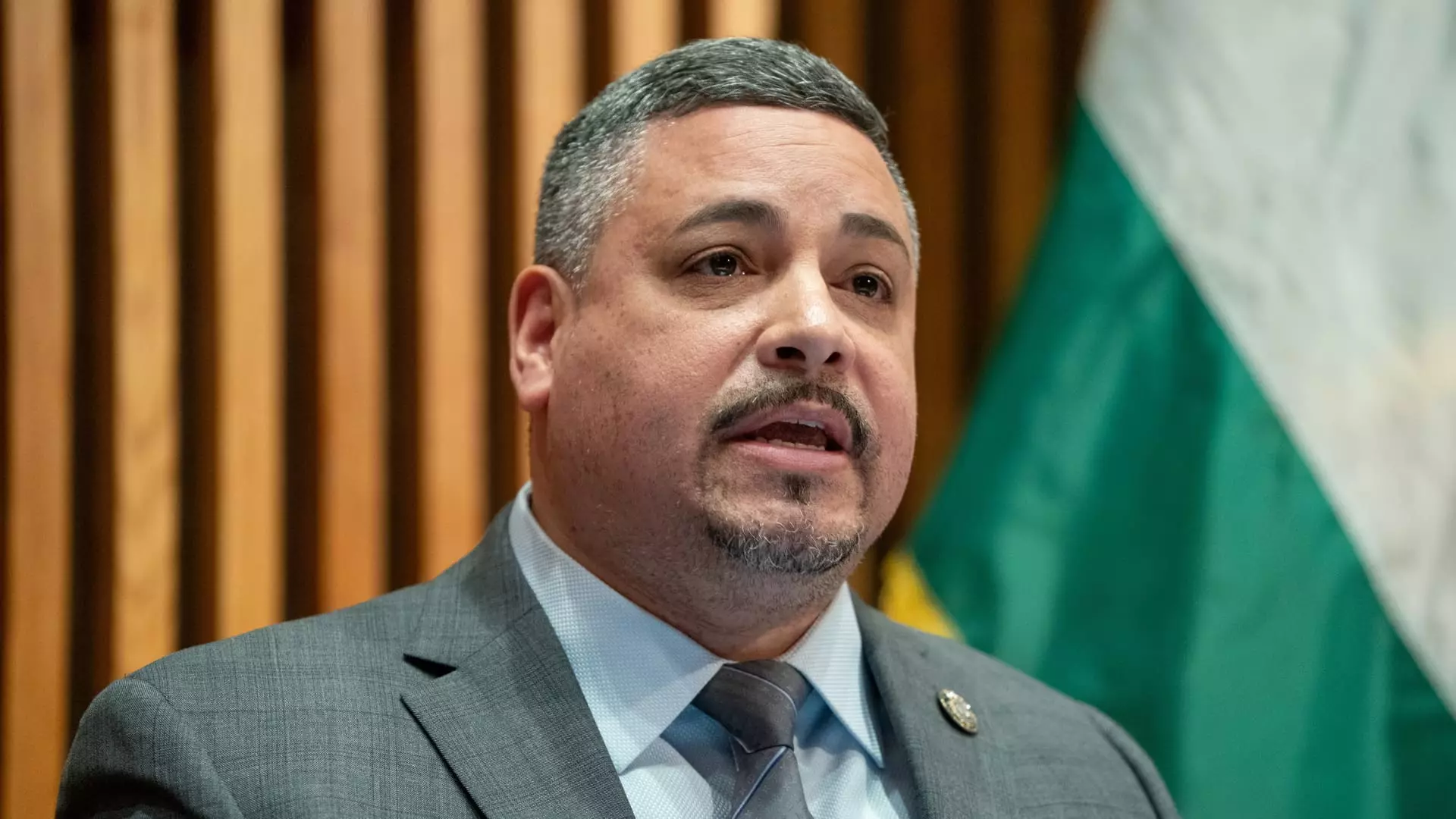The recent resignation of NYPD Commissioner Edward Caban has sent ripples through the fabric of New York City’s public safety apparatus. Announced later in the week, his departure came amidst a developing federal investigation related to the enforcement of nightclub regulations—a situation that has raised serious questions about ethics and accountability within the city’s largest police department. The intersection of leadership challenges, ongoing investigations, and the public’s perception of law enforcement creates a complex situation that warrants deeper exploration.
The Weight of Leadership and Ethical Responsibility
Caban, who made history as the first Latino commissioner in the NYPD’s 179-year legacy, expressed that his resignation was motivated by his commitment to the department and his respect for the officers under his command. In his farewell memo, he indicated that the “noise” surrounding recent developments obstructed his ability to lead effectively, demonstrating the significant emotional and psychological burden that accompanies high-ranking positions in public service. The importance of transparency and ethical vigilance in leadership roles cannot be overstated, especially in law enforcement where public trust is paramount.
He emphasized the need for integrity among leaders and hinted at the potential repercussions of lapses in ethical behavior concerning public perception. Caban’s acknowledgment of his duty towards his officers and the larger community reflects a commendable sense of responsibility, but it simultaneously raises questions about the systemic issues that may have contributed to his tenure’s abrupt end.
The U.S. Attorney’s Office and the IRS’s Criminal Investigation Division are now probing the nature of Caban’s ties to his twin brother, James Caban, who runs a security business that services nightclubs. Federal investigators are scrutinizing whether James benefited financially from relationships with establishments under police jurisdiction and if that created an environment of preferential treatment or intimidation within the precincts. This inquiry underscores a troubling potential for corruption that does not merely affect the individuals involved but also has far-reaching implications for public trust in law enforcement agencies.
The investigation also raises substantial ethical questions regarding potential reciprocal relationships between police officers and the nightclub owners, especially if promotions or favors were contingent upon cooperation with James Caban. The prospect of officers feeling pressured to align with dubious practices to advance their careers undermines the foundational tenets of policing: fairness, justice, and community safety.
Mayor Eric Adams has now witnessed the departure of three police commissioners in a short span, a concerning trend that reflects instability within the leadership of the NYPD. Such turnover can hinder the department’s ability to execute long-term strategies crucial for community engagement and crime reduction. As an interim commissioner, Tom Donlon steps in amid swirling controversies, challenged with rejuvenating morale and instilling trust both within the police force and in the communities they serve.
The city’s ongoing struggle with crime requires competent leadership—one that can navigate investigations while simultaneously addressing public fears about safety and accountability. In an urban landscape already fraught with tensions regarding police reform and race relations, every leadership change garners scrutiny from the public, creating an urgent call for stability and clarity in vision.
Caban’s resignation not only reflects on the individual but also acts as a lens through which the larger systemic challenges of law enforcement are magnified. The continuous cycle of investigations, resignations, and community skepticism suggests a pronounced need for introspection within the NYPD. As the city stands at this crossroads, the pivotal challenge will be establishing a future leadership that fosters transparency, ethical conduct, and genuine community connection.
The New York City Police Department must work earnestly to rebuild its image and trust levels. Public confidence in law enforcement agencies is a fragile construct, and maintaining vigilance around ethical standards is essential for the department to regain their legitimacy and commitment to the communities they serve.



Leave a Reply